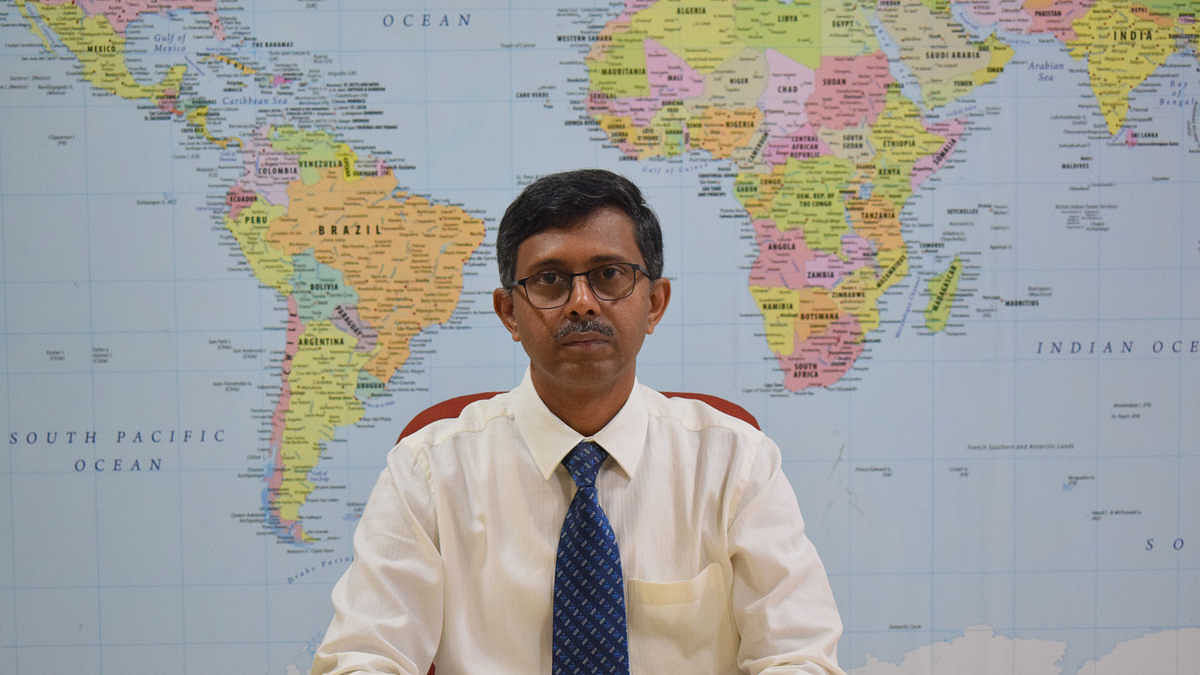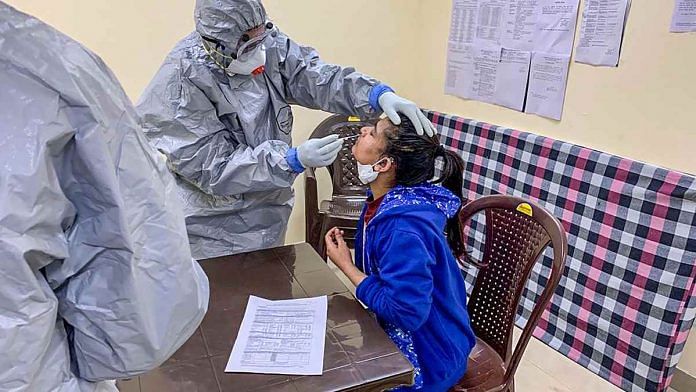New Delhi: There’s a possibility that passengers of Diamond Princess cruise ship who tested negative for coronavirus may still be carrying it, said Dr G. Arunkumar, director of Manipal Institute of Virology.
“Closed community in the ship is very conducive for transmission. I am not sure all the positive cases are of one generation. There may be others who got exposed within the ship and may be incubating. So we may still see cases,” he told The Print.
Arunkumar is a virologist, who had investigated several disease outbreaks, including Gorakhpur encephalitis, and was also at the forefront of detecting the Nipah virus in Kerala.
The cruise ship was docked off the Japanese coast after being found to be a carrier of the virus. After China, the cruise ship had the highest number of positive cases — 542.
Since the 14-day quarantine period is over, many countries have evacuated their passengers from the ship, including the United States.
Indian embassy had earlier said it would begin the process of deboarding of Indian passengers after they test negative for the virus.
On Monday, the Indian embassy said that two more Indians on board the ship have tested positive for the novel virus — bringing the number to six.
As a precautionary measure, passengers evacuated from the ship are also expected to be quarantined for 14 more days in their respective countries.

Also read: India could face drug shortage by mid-March if coronavirus-hit China can’t resume production
Controversy over research lab
The novel coronavirus, renamed COVID-19, has affected more than 73,438 people and killed over 1,875 globally — with a vast majority of these cases reported from China.
The deadly virus was first detected in a local seafood and animal market in China’s Wuhan province. It then spread across 26 countries and impacted global travel and trade.
All 406 Indians evacuated from Wuhan had tested negative for the virus and will be discharged in a phased manner, according to the health ministry.
Two weeks ago, the government had said the Manipal Centre for Virus Research (MCVR) laboratory did not have the required clearance to deal with Nipah virus, which could be used as a bioweapon.
The government had even asked the US Centre for Disease Control and Prevention to halt their funding to the MCVR to work on the Nipah virus.
Calling the government’s allegations baseless and irresponsible, 49-year-old Arunkumar said: “We strongly and categorically deny the allegation. Everything was done with regular oversight of the Ministry of Health and Family Welfare and Government of India.”
Manipal Institute of Virology was formerly known as Manipal Centre for Virus Research.
The MCVR was set up with funding from the Indian Council of Medical Research, which continued its funding until 2019, he told The Print.
Mortality rate 10 times more than influenza
While Covid-19 virus is related to SARS (Severe Acute Respiratory Syndrome) virus, it differs from SARS because it can sustain human to human transmission in the community.
Also, Covid-19 appears to be transmissible even during the early phase, unlike SARS, which transmits during the later stages of the disease — which is why 50 per cent of the human infections were hospital-acquired, said Arunkumar.
While there have been some reports, saying that the mortality of Covid-19 was not as high as other viruses and that common flu or influenza killed more people every year, Arunkumar said the current data suggests that the mortality rate of coronavirus is at least 10 times more.
However, as the virus spreads to more people and the number of asymptomatic cases are known, the mortality rate may reduce to be as much as influenza, he said.
“[In] Any new outbreak, the mortality rate will be higher during the initial period of outbreak due to biased testing of severe cases, case management issues, etc. As the outbreaks set in, mortality may drop,” the virologist added.
Also read: When will the coronavirus outbreak end? Experts make predictions
Kerala’s surveillance ‘excellent’
Only Kerala has been issuing detailed data about the number of passengers screened, quarantined and under surveillance.
Absence of cases may be an indicator of inadequate surveillance, said Arunkumar.
While Kerala’s surveillance system and containment measures were excellent, it has to be institutionalised to ensure other public health services are not affected, said Arunkumar.
The first three Indians, who tested positive for the virus, were from Kerala and all of them have now recovered after treatment.
Lessons for India
Since the 2003 SARS outbreak in China, the country has come a long way in strengthening its surveillance, preparedness, disease-detection and public health response systems, said Arunkumar.
India too has strengthened its surveillance system after SARS, but not to the extent of China, he added.
“We need to heavily invest in laboratory supported disease surveillance and prepare our healthcare system to accommodate large numbers of cases if necessary. Infrastructure investment of a permanent nature is required,” he said.
“Any delay in detection of an emerging pathogen can affect our economic security. Hence, India should move away from its historic precautionary stand in public health to preparedness to mitigate public health threats,” said Arunkumar.
It is time to consider how India will meet the need for more hospital beds, healthcare workers, how to sustain supply and consequence of city lockdowns, he added.
Also read: IAF set to fly emergency medical supplies to coronavirus-hit China tomorrow



